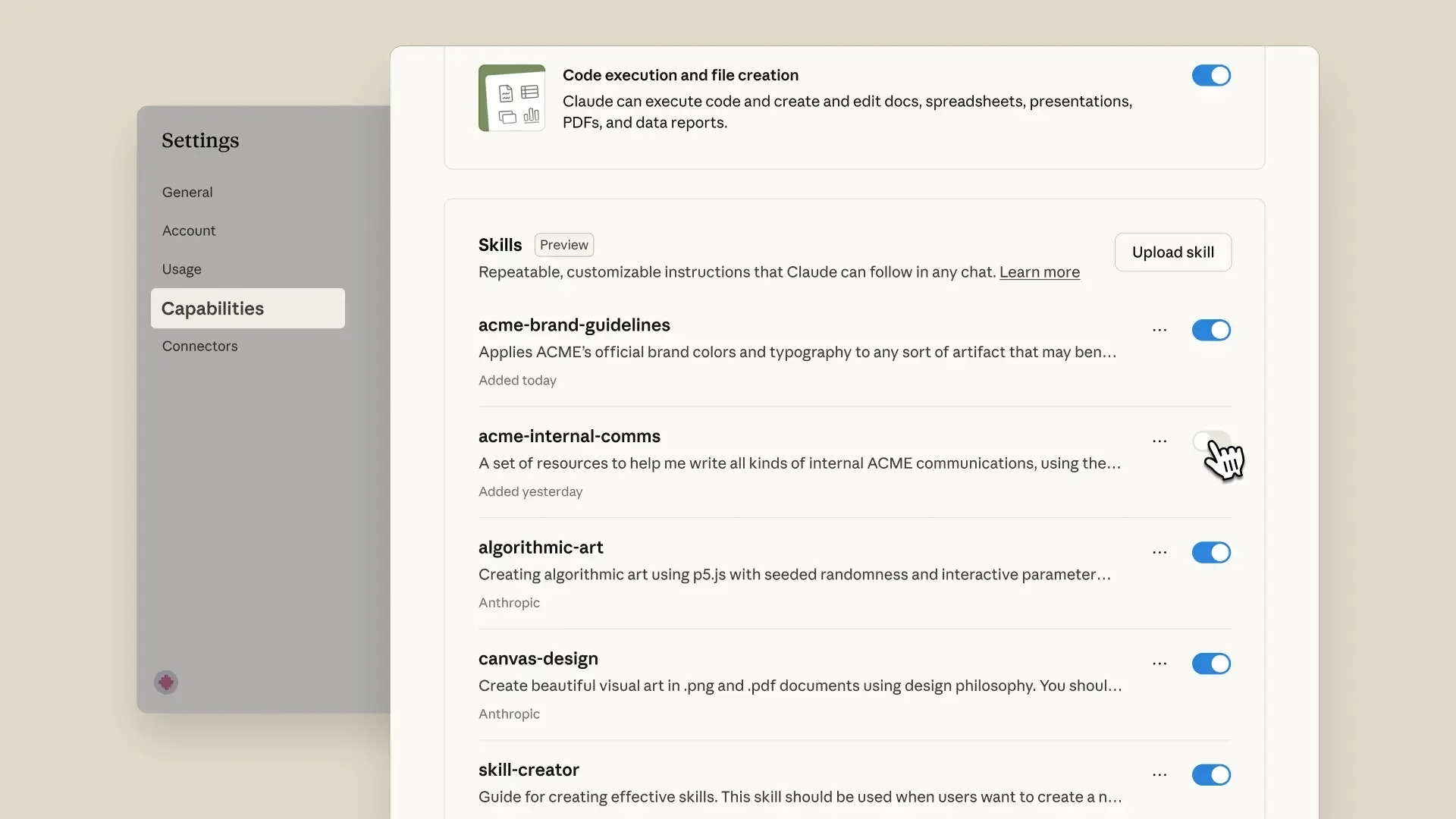Anthropic launches Skills for Claude, a new era for truly useful AI agents
Artificial intelligence agents are no longer just a promise. After years of concepts and prototypes, major companies in the field are ramping up efforts to make these assistants truly effective in a professional setting.
Anthropic has taken a significant step with the announcement of Skills for Claude, a feature designed to teach AI how to work better based on each organization’s specific needs.
Skills for Claude: Custom “Skill Sets”
Specifically, Skills for Claude are sets of files containing instructions, scripts, and resources that Claude can load on-demand to adapt to a particular task—whether it’s manipulating Excel data, writing a report according to company guidelines, or creating a complete PowerPoint presentation.
Users can create their own Skills for Claude tailored to their profession and deploy them across all Anthropic platforms:
- Claude.ai (web interface),
- Claude Code (development environment),
- Anthropic API,
- and the Claude Agent SDK for custom integrations.
Companies like Box, Rakuten, and Canva are already utilizing these tools to automate certain internal tasks.

The goal: Truly Contextual Agents
According to Brad Abrams, product manager at Anthropic, the main advantage of Skills lies in their ability to anchor Claude within a company’s real context: “This isn’t about benchmarks or technical scores, but about the ability to execute a useful task in a specific professional environment.”
He cites the example of a Skill dedicated to PowerPoint, capable of generating a complete presentation on the performance of Claude Haiku 4.5 in the market, with well-formatted slides ready for use.
The result: fewer prompts to write, less context to recall, and a significant productivity gain.
A More “Agentic” Approach to AI
With Skills for Claude, Anthropic pushes further the concept of autonomous AI agents—systems capable of understanding an overall goal, accessing the right tools, and completing complex tasks autonomously. This idea aligns with trends shared by OpenAI, Google, and Microsoft, all in pursuit of “useful” AI integrated into workflows.
Anthropic had already explored this path with features like Computer Use, allowing Claude to interact with applications. Skills for Claude takes it further by providing AI with structured, shareable, and reusable procedural memory.
In Competition with OpenAI: The Battle of Agent Tools
The announcement of Skills for Claude comes shortly after OpenAI revealed AgentKit at its annual DevDay event. This suite of tools aims to help developers move “from prototype to production” for their own agents, with concrete use cases such as Albertsons, a major American retailer, using an agent to optimize ice cream sales.
Both approaches share a common goal: simplifying the creation of specialized agents and making them deployable at scale, whether in a multinational corporation or an SME.
Wider Availability
Skills for Claude are now available for Pro, Max, Team, and Enterprise subscribers. Anthropic emphasizes portability and consistency: a skill created once can be used across all Claude environments without additional development.
With Skills, Anthropic is transforming how businesses can impart their expertise to AI. Instead of recontextualizing everything through prompts or RAG (retrieval-augmented generation) frameworks, companies can now package their knowledge into reusable, shareable, and modular Skills.
If this approach proves appealing, it may signal a turning point: the shift from “conversational” AI to operational AI—capable of executing concrete tasks within the rules of an organization.




